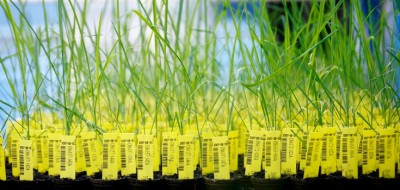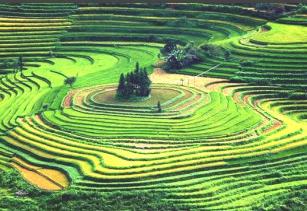Monsanto, the Producer of “Agent Orange” brings GMO Agriculture to Vietnam
Jeffrey Smith: “a dangerous march away from national sovereignty for Vietnam and its farmers”

By Chemical Concern
In November last year, Brian Leung, a Southeast Asia-based journalist, observed:
“Vietnam continues to roll out the red carpet for foreign biotech giants, including the infamous Monsanto, to sell the controversial genetically modified (GM) corn varieties in the country. Jeffrey Smith and other critics say that by welcoming Monsanto, Vietnam has been too nice to the main manufacturer of Agent Orange, the toxic defoliant used during the Vietnam War that left a devastating legacy still claiming victims today.”
Just Means, an online publisher of news about corporate social responsibility, sustainability, energy, health, education, technology and innovation, added an update:
Monsanto sees a large potential in Vietnam as a main market for the company, and plans to increase its investments in the country in the future. Juan Ferreira, vice president of Monsanto said that the country has a combination of good soil, good governance, and appetite for investment, which paves the way for the entry of advanced technologies.
No mention of GM by name – but plenty of enabling activity
Ferreira said that with advanced technologies, it is possible to develop agriculture sustainably by using the same or less water and nitrogen and achieve greater yields. The technologies were not named. No reference was made to the Vietnamese government’s 2006 plan (see Leung) to develop GM crops as part of a “major program for the development and application of biotechnology in agriculture and rural development.”
In August 2014, it was announced that cultivation of the country’s first GM crops will be underway by 2015 and 30-50% of farmland covered with genetically modified organisms by 2020. The country’s agriculture ministry approved the imports of four corn varieties engineered for food and animal feed processing: MON 89034 and NK 603, products of DeKalb Vietnam (a subsidiary of U.S. multinational Monsanto), and GA 21 and MIR 162 from the Swiss firm Syngenta. The Vietnamese environment ministry has to date issued bio-safety certificates for Monsanto’s MON 89034 and NK 603 corn varieties and Syngenta’s GA 21, meaning farmers can start commercially cultivating the crops. The ministry is considering issuing a similar certificate for the other variety, MR 162.
Would Vietnam be throwing away its great advantage as a non-GMO producer?
 There has been a surge in consumer rejection of GMOs in the U.S., with food companies scrambling to secure non-GMO supplies, according to the New York Times. Last year, China rejected 887,000 tons of U.S. corn because it contained Syngenta’s GM maize MIR 162 – the very same variety that has just been licensed for use in Vietnam. Could these terraced fields in Mu Cang Chai, in the northeastern region of Vietnam be bull-dozed for agri-business or other forms of maldevelopment?
There has been a surge in consumer rejection of GMOs in the U.S., with food companies scrambling to secure non-GMO supplies, according to the New York Times. Last year, China rejected 887,000 tons of U.S. corn because it contained Syngenta’s GM maize MIR 162 – the very same variety that has just been licensed for use in Vietnam. Could these terraced fields in Mu Cang Chai, in the northeastern region of Vietnam be bull-dozed for agri-business or other forms of maldevelopment?
GMOs in their current state have nothing to offer the cause of feeding the hungry, alleviating poverty, and creating sustainable agriculture, according to the IAASTD report.
The International Assessment of Agricultural Knowledge, Science and Technology for Development report, an exhaustive analysis of agriculture and sustainability, concludes that the high costs of seeds and chemicals, uncertain yields, and the potential to undermine local food security make biotechnology a poor choice for the developing world.
It is feared that introducing Monsanto’s modified corn and the toxic weed killer Roundup Monsanto plugs for use along with its crops could have tragic consequences, as did their product Agent Orange.
Copyright Chemical Concern 2015


